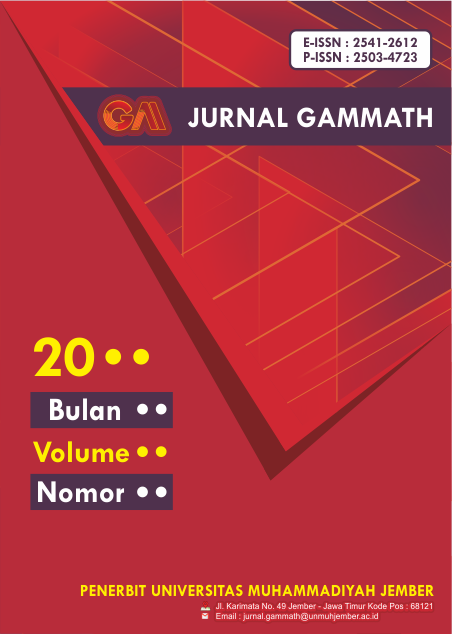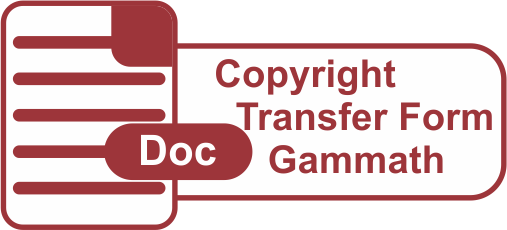About the Journal
Editorial Team
Reviewer
Contact
Focus and Scope
Peer Review Process
Publication Frequency
Plagiarism Policy
Author Guidelines
Author Fees Indexing
Publication Ethics
Publication Ethics
Journal Publisher Code Ethics
1. Determining the journal's name, scientific scope, publication schedule, and accreditation.
2. Determining the editorial board's membership
3. Determining the contractual relationship between publishers, editors, peer review, and other stakeholders.
4. Respecting the privacy of the contributing researchers, author, editor, and peer reviewers
5. Applying the rules and laws of intellectual property rights, particularly copyrights
6. Conducting policy reviews on journals and presenting the results to the authors, editorial board, and readers.
7. Developing behavior code review criteria for editors and reviewers.
8. Publishing journals on a regular basis
9. Ensuring the availability of resources for the publication of journals on sustainability
10. Establishing a network of collaboration and marketing.
11. Preparing for licensing and other legal considerations.
Editor Code Ethics
1. Improving the quality of published works.
2. ensuring the process to preserve the quality of published articles
3. Taking the lead in expressing one's opinion.
4. Maintaining the author's academic track record's integrity.
5. Communicating any necessary corrections, explanations, withdrawals, and apologies.
6. Taking responsibility for the paper's layout and formatting, while the authors are responsible for the paper's substance and any statements.
7. Evaluating the published journal's policies and attitudes from the author and peer review in order to improve accountability and minimize errors.
8. Accepting the new idea or viewpoint of others that differs from one's own.
9. Prohibiting us from defending our own point of view, the author's point of view, or third parties, which may result in an incorrect conclusion.
10. Encouraging the author to make improvements to the manuscript until it is publishable.
Peer Review Code Ethics
1. Receiving the assignment from the editors to review the papers and submit the evaluation to the editor in order to determine the publishing viability of the work.
2. Conducting timely reviews of the papers in compliance with the style guide and scientific standards (method of data collection, the legality of the author, conclusions, etc.).
3. Examining the articles that have been edited according to the requirements.
4. Encouraging the author to enhance the manuscript by providing criticism, suggestions, and recommendations.
5. Protecting the author's confidentiality by concealing the author's edits, comments, and recommendations.
6. Reviewers may not evaluate publications that directly or indirectly involve them in the work.
7. Adhering to the standards for peer review when evaluating papers and evaluating the evaluation form document provided by the editors.
8. Evaluating the content of papers without fixing the grammar, punctuation, or typographical errors.
9. Ensuring the principles of truth, originality, and novelty; prioritizing the paper's contribution to the advancement of science, technology, and innovation; and appreciating its influence on the evolution of science writing.
10. Prohibiting the defense of one's own opinion, the author, or third parties that may result in a reference to a decision that is not objective.
11. Upholding the importance of objectivity and being unaffected by any influences.
12. Ensuring the confidentiality of the paper's conclusions until publication.
13. Having a broad awareness of the expertise and the ability to deliver an acceptable and accurate review of the document.
14. Refusing to conduct a review if the research is not from the expert's area of study. Instead, the peer review should provide the researcher with recommendations if there is another expert on the issue.
15. Possessing an open-minded disposition that accepts the fresh idea or views of others that differ from their own.
16. Refusing to complete the review if the editor's deadline is missed. The peer reviewer should inform the editor as soon as possible if they will be absent.
17. The review's findings must be presented with honesty, objectivity, and clear argumentation. Following are some potential suggestions based on the review:
18. Accepted without correction
19. Accepted with minor changes (after repaired by the author, it is not necessary to go to peer review)
20. Accepted with major changes (after repaired by the author, return to the peer review for re-review)
21. Rejected and suggested for publishing elsewhere
22. Rejected and advised not to be published in any journal due to scientific flaws affecting the community
23. Rejecting the last recommendation as the last choice if the paper isn't possible or if the author has broken the code of ethics very badly.
24. Review-evaluated materials may not be used for personal or third-party purposes. In addition, the author's consent must be obtained prior to the use of any of the evaluated papers' content.











